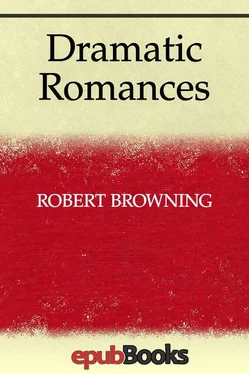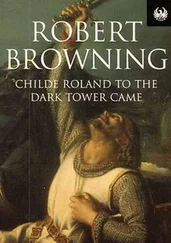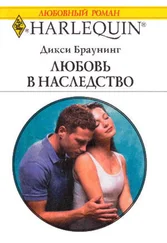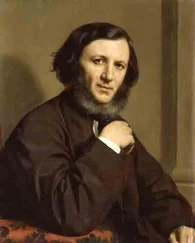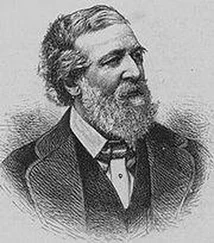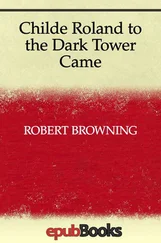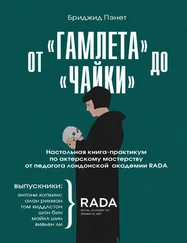An Old Story
I
It was roses, roses, all the way,
With myrtle mixed in my path like mad:
The house–roofs seemed to heave and sway,
The church–spires flamed, such flags they had,
A year ago on this very day.
II
The air broke into a mist with bells,
The old walls rocked with the crowd and cries.
Had I said, "Good folk, mere noise repels—
But give me your sun from yonder skies!"
They had answered, "And afterward, what else?" 10
III
Alack, it was I who leaped at the sun
To give it my loving friends to keep!
Nought man could do, have I left undone:
And you see my harvest, what I reap
This very day, now a year is run.
IV
There's nobody on the house–tops now—
Just a palsied few at the windows set;
For the best of the sight is, all allow,
At the Shambles' Gate—or, better yet,
By the very scaffold's foot, I trow.
V
I go in the rain, and, more than needs,
A rope cuts both my wrists behind;
And I think, by the feel, my forehead bleeds,
For they fling, whoever has a mind,
Stones at me for my year's misdeeds.
VI
Thus I entered, and thus I go!
In triumphs, people have dropped down dead.
"Paid by the world, what dost thou owe
Me?"—God might question; now instead,
'Tis God shall repay: I am safer so.
NOTES:
"The Patriot" is a hero's story of the reward and punishment dealt him for his services within one year. To act regardless of praise or blame, save God's, seems safer.
That's my last Duchess painted on the wall,
Looking as if she were alive. I call
That piece a wonder, now: Fra Pandolf's hands
Worked busily a day, and there she stands.
Will't please you sit and look at her?
I said "Fra Pandolf" by design, for never read
Strangers like you that pictured countenance,
The depth and passion of its earnest glance,
But to myself they turned (since none puts by the curtain
I have drawn for you, but I)
And seemed as they would ask me, if they durst,
How such a glance came there; so, not the first
Are you to turn and ask thus.
Sir, 'twas not Her husband's presence only, called that spot
Of joy into the Duchess' cheek: perhaps
Fra Pandolf chanced to say
"Her mantle laps Over my lady's wrist too much," or
"Paint Must never hope to reproduce the faint
Half–flush that dies along her throat"; such stuff
Was courtesy, she thought, and cause enough
For calling up that spot of joy. She had
A heart—how shall I say—too soon made glad,
Too easily impressed; she liked whate'er
She looked on, and her looks went everywhere.
Sir, 'twas all one! My favour at her breast,
The dropping of the daylight in the West,
The bough of cherries some officious fool
Broke in the orchard for her, the white mule
She rode with round the terrace—all and each
Would draw from her alike the approving speech,
Or blush, at least. She thanked men—good! but thanked
Somehow—I know not how—as if she ranked
My gift of a nine–hundred–years–old name
With anybody's gift. Who'd stoop to blame
This sort of trifling? Even had you skill In speech
(which I have not) to make your will
Quite clear to such an one, and say, "Just this
Or that in you disgusts me; here you miss,
Or there exceed the mark"—and if she let
Herself be lessoned so, nor plainly set
Her wits to yours, forsooth, and made excuse,
E'en that would be some stooping; and I choose
Never to stoop. Oh sir, she smiled, no doubt,
Whene'er I passed her; but who passed without
Much the same smile? This grew; I gave commands;
Then all smiles stopped together. There she stands
As if alive. Will't please you rise? We'll meet
The company below, then. I repeat,
The Count your master's known munificence
Is ample warrant that no just pretence
Of mine for dowry will be disallowed;
Though his fair daughter's self, as I avowed
At starting, is my object. Nay, we'll go
Together down, sir. Notice Neptune, though,
Taming a sea–horse, thought a rarity,
Which Claus of Innsbruck cast in bronze for me!
NOTES:
"My Last Duchess" puts in the mouth of a Duke of Ferrara, a typical husband and art patron of the Renaissance, a description of his last wife, whose happy nature and universal kindliness were a perpetual affront to his exacting self–predominance, and whose suppression, by his command, has made the vacancy he is now, in his interview with the envoy for a new match, taking precaution to fill more acceptably.
3. Fra Pandolf, and 56. Claus of Innsbruck, are imaginary.
Count Gismond
Aix En Provence
I
Christ God who savest man, save most
Of men Count Gismond who saved me!
Count Gauthier, when he chose his post,
Chose time and place and company
To suit it; when he struck at length
My honour, 'twas with all his strength.
II
And doubtlessly ere he could draw
All points to one, he must have schemed!
That miserable morning saw
Few half so happy as I seemed, 10
While being dressed in queen's array
To give our tourney prize away.
III
I thought they loved me, did me grace
To please themselves; 'twas all their deed;
God makes, or fair or foul, our face;
If showing mine so caused to bleed
My cousins' hearts, they should have dropped
A word, and straight the play had stopped.
IV
They, too, so beauteous! Each a queen
By virtue of her brow and breast;
Not needing to be crowned, I mean,
As I do. E'en when I was dressed,
Had either of them spoke, instead
Of glancing sideways with still head!
V
But no: they let me laugh, and sing
My birthday song quite through, adjust
The last rose in my garland, fling
A last look on the mirror, trust
My arms to each an arm of theirs,
And so descend the castle–stairs—
VI
And come out on the morning–troop
Of merry friends who kissed my cheek,
And called me queen, and made me stoop
Under the canopy—a streak
That pierced it, of the outside sun,
Powdered with gold its gloom's soft dun—
VII
And they could let me take my state
And foolish throne amid applause
Of all come there to celebrate
My queen's–day—Oh I think the cause
Of much was, they forgot no crowd
Makes up for parents in their shroud!
VIII
However that be, all eyes were bent
Upon me, when my cousins cast
Theirs down; 'twas time I should present
The victor's crown, but…there, 'twill last
No long time…the old mist again
Blinds me as then it did. How vain!
IX
See! Gismond's at the gate, in talk
With his two boys: I can proceed.
Well, at that moment, who should stalk
Forth boldly—to my face, indeed—
But Gauthier, and he thundered "Stay!"
And all stayed. "Bring no crowns, I say!"
X
"Bring torches! Wind the penance–sheet
About her! Let her shun the chaste,
Or lay herself before their feet!
Shall she whose body I embraced
A night long, queen it in the day?
For honour's sake no crowns, I say!"
XI
I? What I answered? As I live,
I never fancied such a thing
As answer possible to give.
What says the body when they spring
Some monstrous torture–engine's whole
Strength on it? No more says the soul.
Читать дальше
